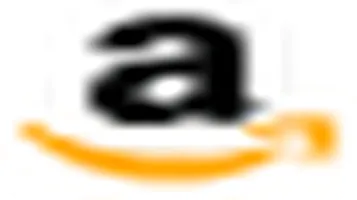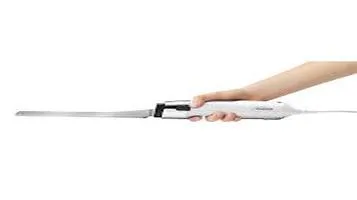Dry Shampoo: The Ultimate Hair Care Savior or Just a Quick Fix?
Dry shampoo is a convenient hair care product designed to refresh and cleanse hair without the need for water. Ideal for busy lifestyles or quick touch-ups, it typically comes in aerosol spray, powder, or foam form. The primary ingredients often include starches or alcohols that absorb excess oil and grease from the scalp, leaving hair looking and feeling cleaner. In addition to its cleansing properties, dry shampoo can add volume and texture, making it a popular choice for styling. It's especially beneficial for those with oily hair, extending the time between washes while minimizing damage from frequent washing and heat styling. Available in various scents and formulations, it caters to different hair types and color needs, making it a versatile addition to any hair care routine.

In the ever-evolving world of hair care, dry shampoo has emerged as a staple product that promises to revolutionize our hair routines. As someone who has tried various brands and formulations, I find myself compelled to share my comprehensive review of dry shampoo: its promises, performance, and pitfalls.
The Promise of Dry Shampoo
Dry shampoo is marketed as a miraculous product designed to absorb excess oil from the scalp, refresh hair, and extend the time between washes. It's particularly lauded by those with busy lifestyles, frequent travelers, and anyone looking to maintain their hairstyle without the daily hassle of washing and blow-drying. The product typically comes in an aerosol spray, powder, or foam form, and it usually contains ingredients like starch, alcohol, and clay to help soak up oil and add volume.
My Experience
Having a naturally oily scalp, I was particularly excited to try dry shampoo as a remedy for my greasy roots. Over the past few years, I've experimented with several brands, including cult favorites like Batiste, Dove, and Living Proof, as well as some niche organic options.
Application and Immediate Results:
One of the first things you'll notice about dry shampoo is how easy it is to apply. Most aerosol sprays require a simple shake, spray, and massage into the roots. Powders, though slightly messier, follow a similar application process. I found that within minutes, my hair looked significantly less oily, and it felt cleaner to the touch. The added volume was a delightful bonus, making my hair appear fuller and more textured.
Scent and Residue:
The scent of dry shampoo can be a hit or miss. Some brands offer a pleasant, fresh aroma that leaves your hair smelling clean, while others can be overpowering or have a chemical undertone. The residue is another critical factor. While many brands have perfected the no-residue formula, some budget options can leave a white, powdery finish that is particularly noticeable on darker hair. It's always a good idea to brush thoroughly after application to minimize this effect.
Longevity:
One of the most significant advantages of dry shampoo is its ability to extend the time between washes. On average, I found that I could go an extra two to three days without washing my hair, which was a game-changer for my busy schedule. However, it's essential to note that dry shampoo is not a substitute for regular washing. Over-reliance can lead to product buildup, which can clog hair follicles and potentially cause scalp issues.
The Science Behind Dry Shampoo
Understanding the science behind dry shampoo helps in making an informed choice. Most dry shampoos contain alcohol or starch-based ingredients that help absorb oil, along with fragrance to mask any odors. Some advanced formulations also include conditioning agents that help maintain hair health. However, frequent use can strip the scalp of natural oils, leading to dryness or irritation.
Pros and Cons
Pros:
1. Convenience: Dry shampoo is incredibly convenient for quick touch-ups and extending the life of a blowout or style.
2. Volume Boost: It adds instant volume and texture, making it easier to style hair.
3. Time-Saving: It significantly cuts down the time spent on hair care routines, especially for those with busy schedules.
4. Travel-Friendly: Ideal for on-the-go use, especially during travel or long events.
Cons:
1. Product Buildup: Overuse can lead to buildup on the scalp, which can cause irritation and impede hair growth.
2. Residue: Some formulations can leave a white or chalky residue, particularly noticeable on darker hair.
3. Scalp Health: Continuous use without proper washing can affect scalp health, leading to dryness or dandruff.
4. Cost: High-quality dry shampoos can be pricey, and frequent use can make it an expensive habit.
Conclusion
Dry shampoo has undoubtedly carved out a valuable niche in the hair care market. It offers unparalleled convenience, a quick fix for oily roots, and a way to extend the life of your hairstyle. However, it's essential to use it as a supplementary product rather than a replacement for regular washing.
For those with busy lifestyles, travel schedules, or anyone looking to add a bit of oomph to their hair without the daily wash, dry shampoo is a fantastic addition to your hair care arsenal. Just remember to choose a high-quality product, use it sparingly, and maintain a balanced hair care routine to ensure that your scalp and hair remain healthy.
In conclusion, dry shampoo is like a good friend: reliable, convenient, and always there when you need it. But, just like any friendship, it requires balance and should not be over-relied upon. When used correctly, dry shampoo can indeed be the ultimate hair care savior, offering a quick and effective solution to keep your hair looking fresh and fabulous.






